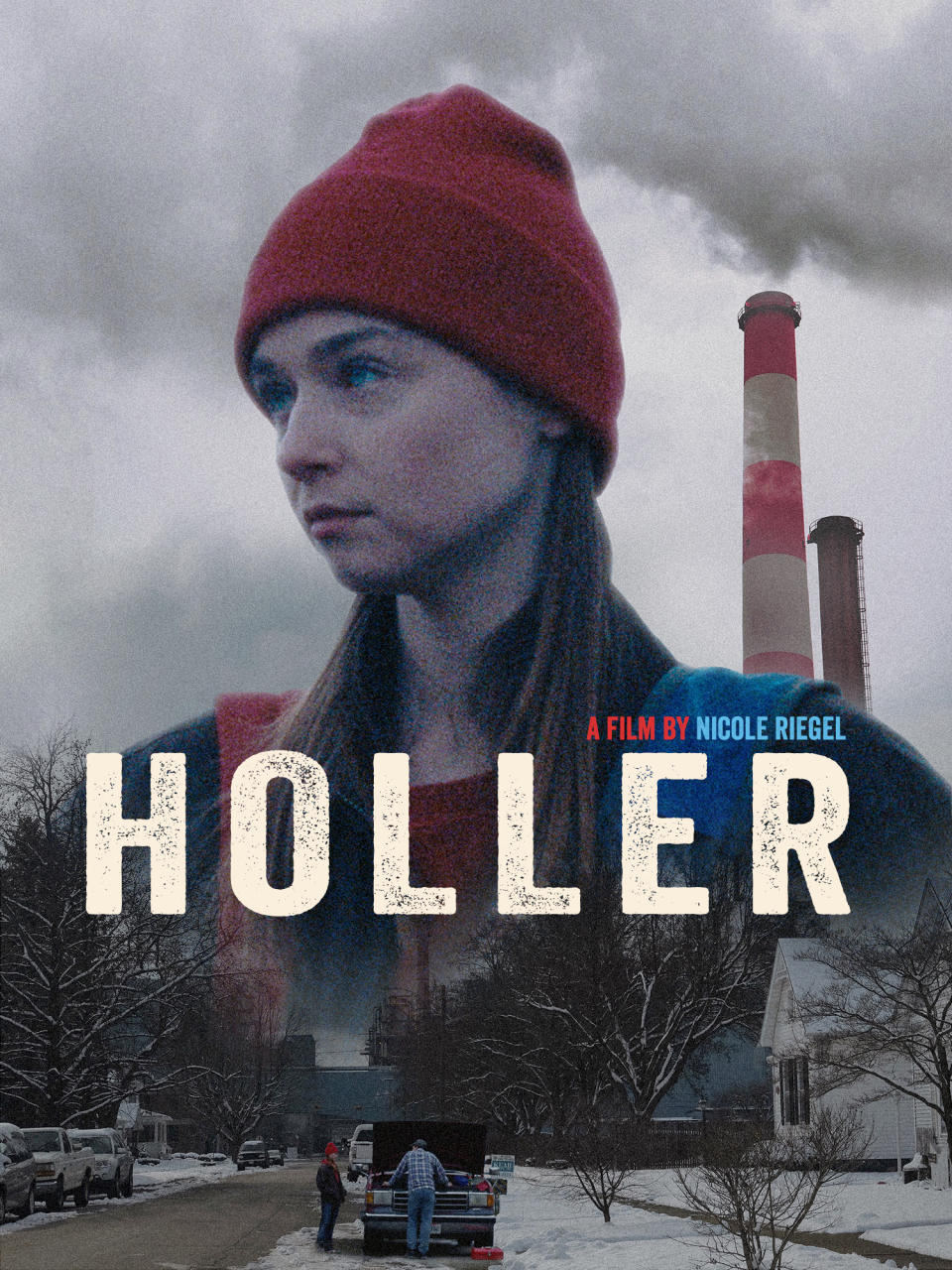'We were not seeing good female characters before': 'Holler' explores the reality of women trying to get an education at TIFF
In her feature-film debut, making its mark at this year’s Toronto International Film Festival (TIFF), writer-director Nicole Riegel explores a semi-autobiographical story in Holler, following a young girl from Ohio as she navigates the complexity of escaping her hometown.
Ruth Avery, played by Jessica Barden (The New Romantic, The End of the F*cking World), gets accepted into college and joins a metal scrapping crew with her brother Blaze (Gus Halper) to earn enough money to go.
Riegel showcases the harsh reality of a teenager from a Rust Belt town being told what the most “practical” or attainable future is for her.
“I wanted to tell a story about how hard it was for me to pursue an education,” Riegel told Yahoo Canada. “It doesn’t shy away from the sadness and the bleak areas of her life but I hope [the audience feels] the triumph in it.”
The lead character instantly stands out from the rest of people in her hometown, always clearly identified in her signature red colour, specifically a red hat.
“I love that colour for that character,” Riegel said. “I think it says so much about her fire and her passion and how much she does not in that world.”
“That’s the thinking behind absolutely, every single detail in Holler is, is this on the pulse of Ruth and if it’s not, throw it away.”

‘What I see on screen is, that means they act like men’
The writer-director revealed that one of the most important things she wanted to convey in Holler is that women can have a shyness and fragility, while still being strong and confident, a duality Riegel believes hasn’t been showcased in many films.
“I remember absolutely feeling like, we have this idea, and maybe it’s a very American idea of strong female characters and what I see on screen is, that means they act like men,” Riegel explained. “When you’re girly or feminine that is very secondary and I don’t believe that.”
“I have never been one of those things completely and I don’t think...anyone, man or woman, is one of those things completely.”
Barden expanded on the concept, indicating that to her it’s just an “obvious” part of being a woman, adding that she wouldn’t respond to a role that didn’t provide the opportunity to showcase every side of a character.
“Yeah, sure, people are still kind of stuck in this world of overanalyzing female characters but I think that’s just a reaction to the fact that we were not seeing good female characters before,” she said. “People ask a lot of questions about being a woman or being a woman in film when really, it’s just all common sense.”
“That’s how I think about it. You have to see somebody cry if you see somebody fight...it’s just like, being a person.”
Barden’s portrayal of a teen from a manufacturing town is honest and powerful, masterfully balancing Ruth’s independence with her more reserved moment in very human way.
Holler could have easily fallen into using stereotypical melodramatic tools to tell its story, but Riegel’s film has an intimacy that is honest and real, and makes you truly want to see Ruth succeed.

 Yahoo Sport
Yahoo Sport 





































